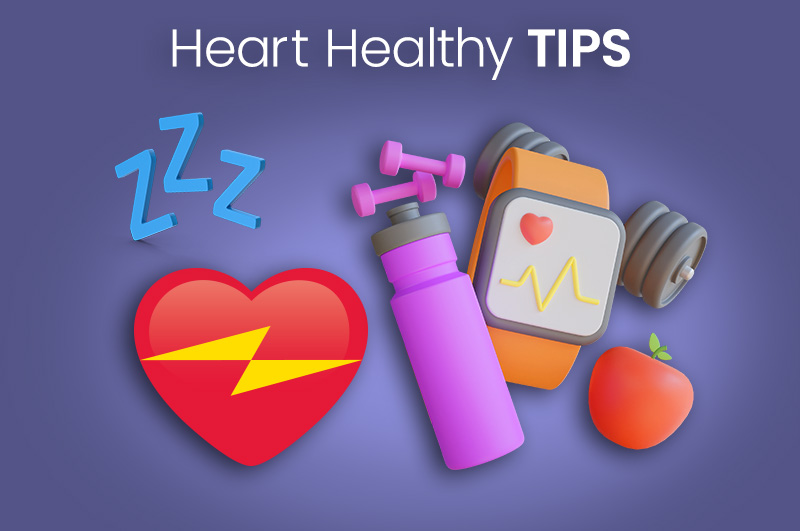News
Latest News
February 3, 2023

February marks American Heart Month and it is a great reminder about the importance of living a heart healthy lifestyle. Below are some tips that can help you maintain a healthy heart!
Physical activity is a great way to keep your heart healthy. The American Heart Association suggests 150 minutes per week of reasonable aerobic activity or 75 minutes per week of dynamic aerobic activity. Additionally, strength training activity is beneficial. It is always good to keep in mind, sitting less and just moving more can be beneficial.
Here are some examples of aerobic activity:
The American Heart Association has linked adults with depression and poor mental health to a higher chance of heart attacks, strokes, and risk for cardiovascular disease. It is important to be self-aware and honest about your mental health and seek assistance if needed. Learning skills for coping with stress is a great way to minimize poor mental health and better manage your day-to-day life.
Smoking, vaping, and tobacco use can be detrimental to your heart health. Almost 1/3 of deaths from coronary heart disease are due to smoking and second-hand smoke. Hundreds of the chemicals found in cigarette smoke are harmful to human health. Don’t forget that if you smoke you are not only hearting your heart health, but you are harming those around you with secondhand smoke. If you are trying to quit smoking, vaping, and/or tobacco use, seek out resources to help you on your journey!
It is always important to learn and practice your CPR skills. When someone collapses, is unresponsive, and not breathing, it is crucial CPR is started right away. Remember, hands only CPR can help save life!
To learn more about Defibtech and to join us on our quest to save lives from sudden cardiac arrest, visit www.Defibtech.com.
Sources:
https://www.heart.org/en/healthy-living/fitness/fitness-basics/aha-recs-for-physical-activity-in-adults
https://www.heart.org/en/healthy-living/healthy-lifestyle/sleep
https://www.heart.org/en/about-us/heart-attack-and-stroke-symptoms
https://www.heart.org/en/health-topics/high-blood-pressure/understanding-blood-pressure-readings/monitoring-your-blood-pressure-at-home
https://www.heart.org/en/healthy-living/healthy-eating
https://www.heart.org/en/healthy-living/healthy-eating/eat-smart/nutrition-basics/aha-diet-and-lifestyle-recommendations
https://www.heart.org/en/news/2023/01/31/depression-poor-mental-health-in-young-adults-linked-to-higher-cardiovascular-risks
https://www.heart.org/en/healthy-living/healthy-lifestyle/quit-smoking-tobacco
https://www.heart.org/en/healthy-living/healthy-lifestyle/quit-smoking-tobacco/how-smoking-and-nicotine-damage-your-body?gclid=CjwKCAiAuOieBhAIEiwAgjCvcndoWCjkhT7XRuvRyj6tl_78j8jin1NOcGXdXIvt9I8q6BvpW3sisxoCnPMQAvD_BwE